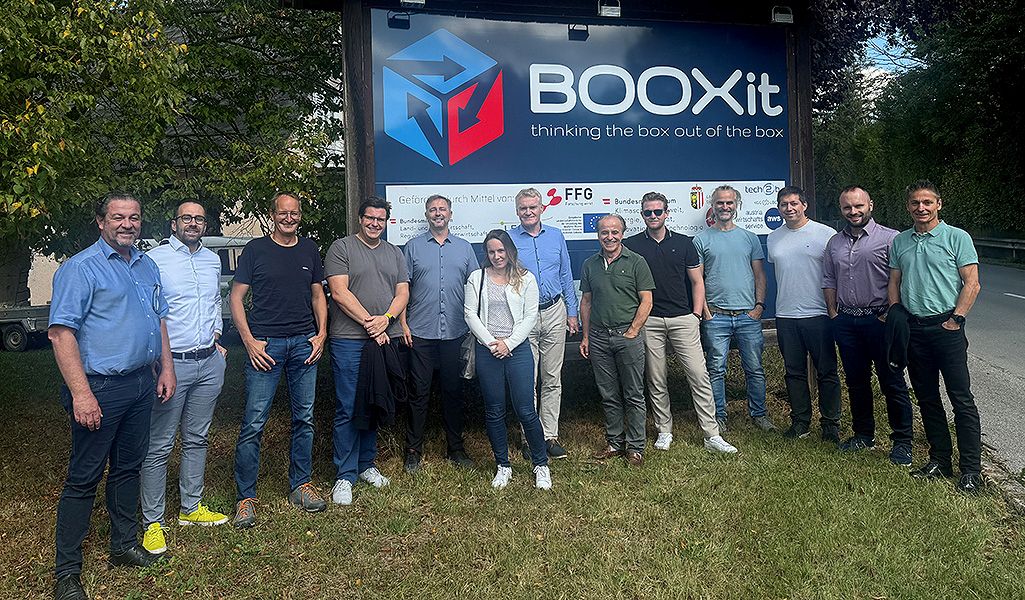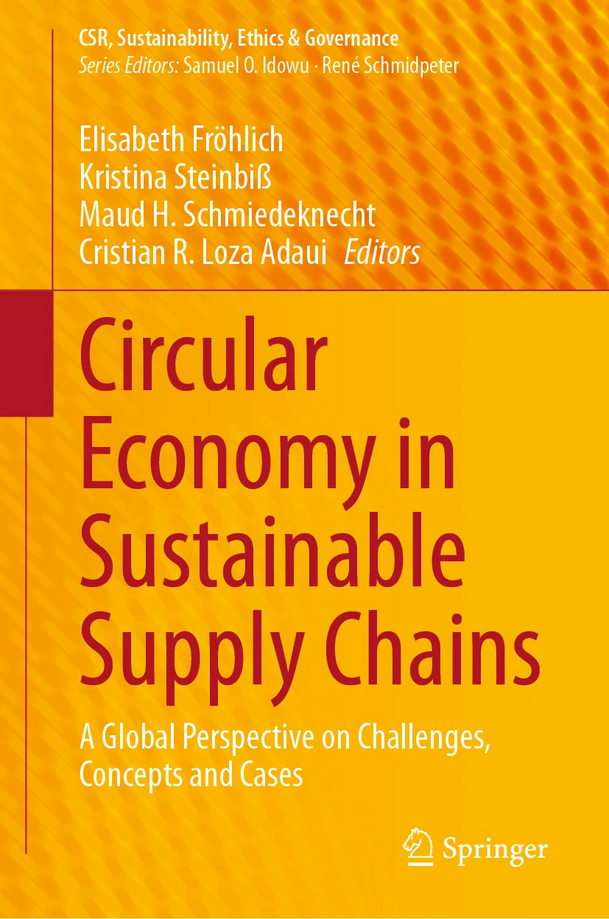In the recently published book “Circular Economy in Sustainable Supply Chains”, Walter Mayrhofer and Gerald Schneikart from the Institute for Digital Transformation and Strategy (IDS), together with Nils Kruse and Melanie Rainer, present findings from the ReKEP research project, from which not only the logistics industry can benefit.
The ReKEP project team at FHWien der WKW, around Walter Mayrhofer (Head of IDS) and Gerald Schneikart (Senior Researcher at IDS), discussed with the project partners AIT, FH OÖ, BOOXit, CompUnity, Afreshed and i-LOG Integrated Logistics the completion of the parcel logistics project in the fall of 2024. At the BOOXit company site in Fischlham near Wels (Upper Austria), the team was presented with the technical enhancements of the shelving system and the reusable box developed in the project, which are intended to replace (disposable) cardboard packaging in the CEP (courier, express, parcel) sector in the future for cost-effective, efficient and flexible use.
Austrian circular economy model for the “last mile”
The project’s findings have now been published in a chapter of the book “Circular Economy in Sustainable Supply Chains“, recently published by Springer. The chapter, written by Walter Mayrhofer and Gerald Schneikart together with Nils Kruse and Melanie Rainer, deals with the replacement of cardboard packaging by the reusable transport container system developed in the project. Using the example of an Austrian circular economy model, the authors describe a framework for evaluating the stakeholders involved in the cycle. They also look at the impact of this fundamental change on social, environmental and economic factors.
Sustainable transformation with challenges
Currently, the courier, express and parcel (CEP) industry primarily uses single-use cardboard boxes (and in some special cases, synthetic polybags). However, rising energy and fuel costs, regulatory and societal demands, and increasing competition are putting pressure on companies to invest in circular solutions such as reusable transport containers.
However, the introduction of new technologies is fraught with challenges. At first glance, sustainable approaches can have unexpected or unintended consequences. To successfully transform the sector, key stakeholders must support the adoption of such new technologies.
Relevant Factors and Stakeholders for Practical Implementation
Using the Austrian CEP industry as an example, this book chapter presents a framework for identifying and prioritizing relevant stakeholders. The authors argue that stakeholders need to be considered in terms of their resources to implement the circular economy solution. The impact of the circular economy approach on social, environmental and economic factors must also be considered. The approach presented is very useful in practice and can be applied to a wide range of industries.
As a further step towards the sustainable and digital transformation of the logistics industry, the knowledge gained will also be incorporated into the FFG-funded follow-up project SIBORC, which was launched in the fall of 2024.

